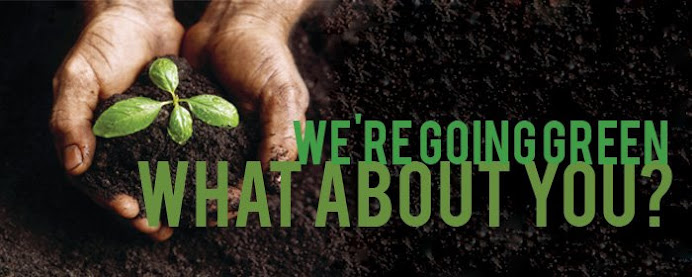How can we live lightly on the Earth and save money at the same time?
Climate change is in the news. It seems like everyone's "going green." We're glad you want to take action, too. Luckily, many of the steps we can take to stop climate change can make our lives better. Our grandchildren-and their children-will thank us for living more sustainably. Let's start now.
Keep reading for 10 simple things you can do today to help reduce your environmental impact, save money, and live a happier, healthier life.
Save energy to save money.
- Install compact fluorescent light bulbs (CFLs) when your older incandescent bulbs burn out.
- Unplug appliances when you're not using them. Or, use a "smart" power strip that senses when appliances are off and cuts "phantom" or "vampire" energy use.
- Wash clothes in cold water whenever possible. As much as 85 percent of the energy used to machine-wash clothes goes to heating the water.
- Use a drying rack or clothesline to save the energy otherwise used during machine drying.
Save water to save money.
- Take shorter showers to reduce water use. This will lower your water and heating bills too.
- Install a low-flow showerhead. They don't cost much, and the water and energy savings can quickly pay back your investment.
- Plant drought-tolerant native plants in your garden. Many plants need minimal watering. Find out which occur naturally in your area.
Less gas = more money (and better health!).
- Walk or bike to work. This saves on gas and parking costs while improving your cardiovascular health and reducing your risk of obesity.
- Consider telecommuting if you live far from your work. Or move closer. Even if this means paying more rent, it could save you money in the long term.
- Lobby your local government to increase spending on sidewalks and bike lanes. With little cost, these improvements can pay huge dividends in bettering your health and reducing traffic.
Eat smart.
- If you eat meat, add one meatless meal a week. Meat costs a lot at the store-and it's even more expensive when you consider the related environmental and health costs.
- Buy locally raised, humane, and organic meat, eggs, and dairy whenever you can. Purchasing from local farmers keeps money in the local economy.
- Watch videos about why local food and sustainable seafood are so great.
Skip the bottled water.
- Use a water filter to purify tap water instead of buying bottled water. Not only is bottled water expensive, but it generates large amounts of container waste.
- Bring a reusable water bottle, preferably aluminum rather than plastic, with you when traveling or at work.
- Check out this short article for the latest on bottled water trends.
Think before you buy.
- Go online to find new or gently used secondhand products.
- Check out garage sales, thrift stores, and consignment shops for clothing and other everyday items.
- When making purchases, make sure you know what's "Good Stuff" and what isn't.
- Watch a video about what happens when you buy things. Your purchases have a real impact, for better or worse.
Borrow instead of buying.
- Borrow from libraries instead of buying personal books and movies. This saves money, not to mention the ink and paper that goes into printing new books.
- Share power tools and other appliances. Get to know your neighbors while cutting down on the number of things cluttering your closet or garage.
Buy smart.
- Buy in bulk. Purchasing food from bulk bins can save money and packaging.
- Wear clothes that don't need to be dry-cleaned. This saves money and cuts down on toxic chemical use.
- Invest in high-quality, long-lasting products. You might pay more now, but you'll be happy when you don't have to replace items as frequently (and this means less waste!).
Keep electronics out of the trash.
- Keep your cell phones, computers, and other electronics as long as possible.
- Donate or recycle them responsibly when the time comes. E-waste contains mercury and other toxics and is a growing environmental problem.
- Recycle your cell phone.
- Ask your local government to set up an electronics recycling and hazardous waste collection event.
Make your own cleaning supplies.

Join the Million Car Carbon Campaign by purchasing yourEarth-Aid kit today.
- The big secret: you can make very effective, non-toxic cleaning products whenever you need them. All you need are a few simple ingredients like baking soda, vinegar, lemon, and soap.
- Making your own cleaning products saves money, time, and packaging-not to mention your indoor air quality.





